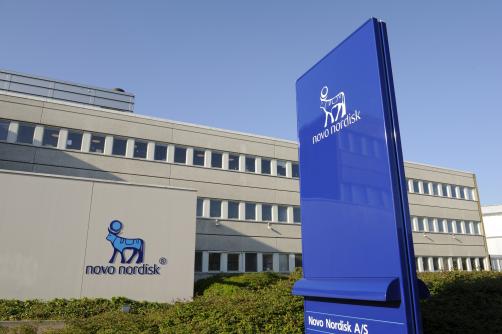
New product can overtake Lantus, says Novo leader
pharmafile | May 11, 2011 | News story | Sales and Marketing | Novo Nordisk, degludec, diabetes, insulin
Novo Nordisk’s new insulin product can eclipse Sanofi’s Lantus within just a few years of its launch, according to Novo’s chief executive.
Speaking at the Reuters Health Summit, Lars Sorensen said new product degludec would quickly become the dominant insulin on the market.
Degludec is an ultra long-lasting insulin product, which Novo believes will capture the lion’s share of the multi-billion dollar market for basal insulin.
Sanofi’s Lantus is currently the world’s biggest selling basal product, with annual sales of $5 billion-a-year. Novo Nordisk introduced a similar product Levemir in 2004, but this still trails Lantus.
A non-inferiority study of degludec versus Lantus published in December found the products equally effective in reducing blood sugar levels, and also produced data suggesting Novo’s drug lowered cases of hypoglycaemia significantly.
Novo is also conducting trials in which degludec taken just three times a week, rather than every day. One trial published last year showed the drug given this way was just as effective as daily Lantus.
The Danish company will file the drug in the US, Europe and Japan by the end of this year — and a little later in China, suggesting a launch in late 2012 or early 2013.
“We will be in pole position,” Sorensen told Reuters. “We are talking 2014 or 2015 before we should arrive at a stage where we are capturing the bulk of the patients going on to basal insulins … We’re basically competing for new starts, which are 10 – 15% of the overall market.”
Asked about analyst forecasts of degludec sales exceeding $1 billion by 2015, Sorensen said: “I don’t think it’s impossible.”
He added that Novo’s US marketing spending is likely to increase gradually during 2012 and 2013 to support both degludec and Victoza, currently only approved for its type II diabetes treatment
Novo and Sanofi are also going head to head with rival GLP1 drugs, injectable treatments which which mimic a natural hormone to stimulate insulin production.
Novo is conducting final-stage phase III trials combining degludec and Victoza, and Sorensen believes his company is ahead of Sanofi, which still needs to prove the cardiovascular safety of the new GLP1 drug, lixisenatide, it is combining with Lantus.
“We are likely to get to the market before Sanofi,” he said.
The nature of the insulin market means it typically remains relatively untouched by government cost cutting measures, and this has helped Novo perform well while other pharma companies have suffered from austerity measures.
Sorensen said there were no plans for large scale acquisitions, and Novo would instead focus on licensing deals for individual products to build its position in diabetes, haemophilia and inflammation.
Novo’s shares have risen by 90% since the start of 2010, lifting the company up the industry ranking to eighth largest drugmaker in the world by market value.
The rivalry is keenly felt at Sanofi, as well, however. Novo is number one in the diabetes market by overall market share, and Sanofi chief executive Chris Viehbacher has also vowed to overtake Novo, claiming its expansion in emerging markets will help it seize the top spot.
Andrew McConaghie
Related Content

FDA approves Wegovy for treatment of MASH in adults with liver fibrosis
The US Food and Drug Administration (FDA) has granted accelerated approval for Wegovy (semaglutide) as …

BioMed X and Novo Nordisk partner on oral peptide drug delivery innovation
BioMed X has announced a new collaboration with Novo Nordisk to improve oral delivery of …

MetP Pharma releases positive data on intranasal semaglutide administration
MetP Pharma has released new data highlighting the advantages of its MetP technology in delivering …






